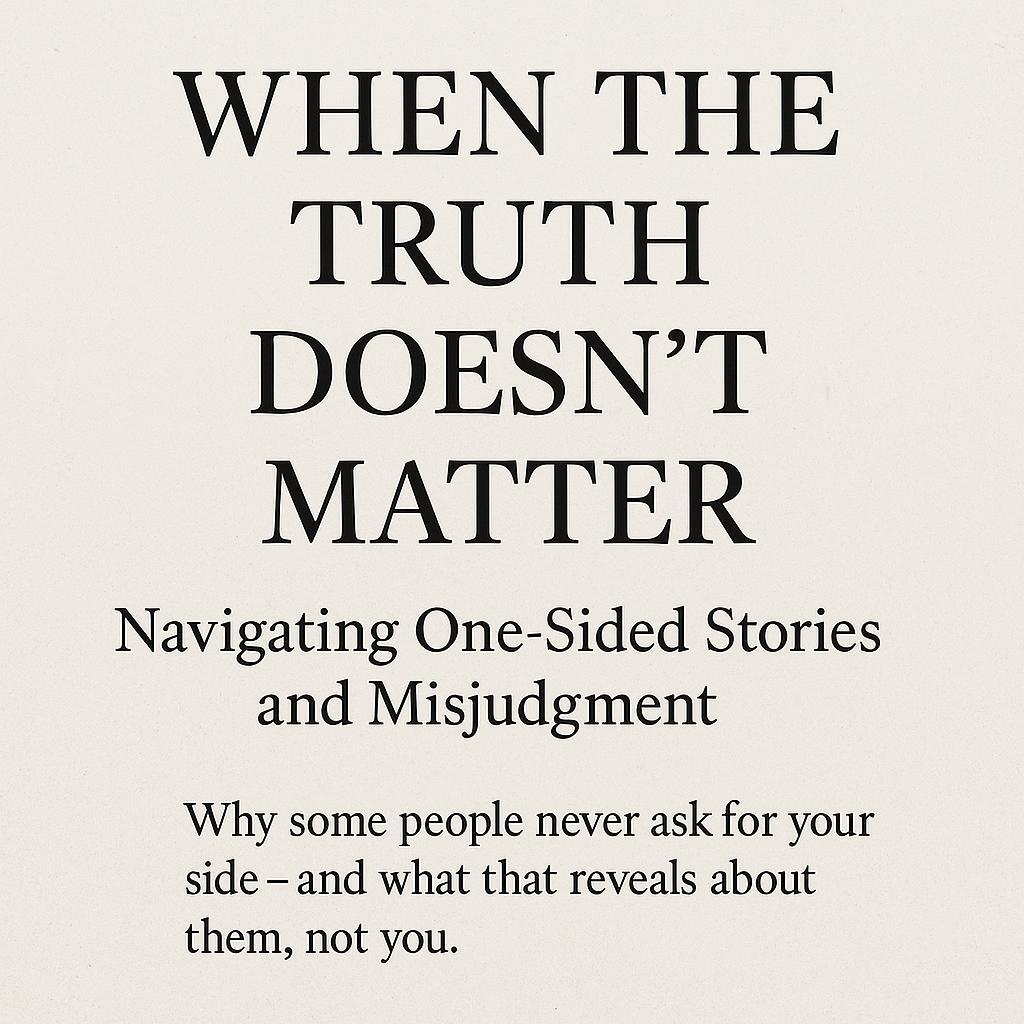
Sunday, April 13, 2025
Unfortunately, some people will never bother to ask for your side of the story, because the side they heard fits how they want to feel about you.

🔍 Review & Expanded Meaning:
This quote shines a light on a hard truth about human relationships and perception: not everyone is interested in fairness, truth, or clarity—especially when a particular narrative supports their existing opinions or emotional comfort.
At its core, this quote is about confirmation bias—the tendency for people to favor information that confirms what they already believe or want to believe. It speaks to a very real and painful human experience: being misjudged, misunderstood, or even vilified without ever having the chance to explain or share your side.
Some individuals don’t seek the full story because they’re not actually looking for the truth—they’re seeking justification for how they already feel about you. Whether it’s jealousy, resentment, pride, or influence from others, their emotional narrative overrides their willingness to listen.
This can be especially frustrating in personal relationships, the workplace, or social circles, where rumors, half-truths, or one-sided stories can spread quickly. When people choose to believe what suits their agenda or emotions—rather than what’s fair or objective—it says more about them than it does about you.
💡 Key Lessons & Takeaways:
Not everyone seeks truth.
Some people are more comfortable clinging to a version of events that fits their narrative, even if it's incomplete or false.You can’t control others’ perceptions.
You can live with integrity and still be misrepresented. Understanding this frees you from trying to convince everyone of your truth.Be careful who you trust with your story.
The quote reminds us to value the people who genuinely care enough to hear both sides—and to be cautious around those who rush to judgment.Judgment is often rooted in emotion, not fact.
When people believe something negative without asking you directly, it’s often because it satisfies something they feel—not something they know.
📜 Context & Origin:
This quote has been widely shared on social media, often attributed to “Unknown,” indicating that it may be part of the modern wisdom circulating in online spaces like Pinterest, Instagram, or motivational blogs. It reflects the kind of hard-earned life lessons that resonate with people who have experienced betrayal, gossip, or misjudgment.
Though we can’t trace it to a specific author, its message echoes psychological principles found in the work of cognitive scientists and social commentators. It’s a quote born from experience—raw, relatable, and emotionally honest.
🧠 Final Thought:
When someone doesn't give you the benefit of the doubt, it's tempting to internalize it. But this quote is a powerful reminder that their failure to seek the truth is not your fault. Your story still matters—even if not everyone bothers to hear it. Focus your energy on those who do.
📚 Recommended Resources
Book: The Four Agreements by Don Miguel Ruiz
– Explores the importance of not taking things personally and not making assumptions—key to handling how others perceive us.Book: Mistakes Were Made (But Not by Me) by Carol Tavris & Elliot Aronson
– A deep dive into cognitive dissonance and confirmation bias, explaining why people stick to one-sided stories.Article: “Why We Believe What We Believe” – Psychology Today
– Explains the science behind belief systems and why people are resistant to change their views, even when faced with new information.Video: “The Danger of a Single Story” – TED Talk by Chimamanda Ngozi Adichie
– A powerful talk about how hearing only one side of a story shapes distorted and incomplete views of people and cultures.
Podcast Episode:The Science of Happiness – “How to See Other People More Clearly”
– Discusses how biases affect our judgment of others and offers tips for cultivating empathy and better communication.

